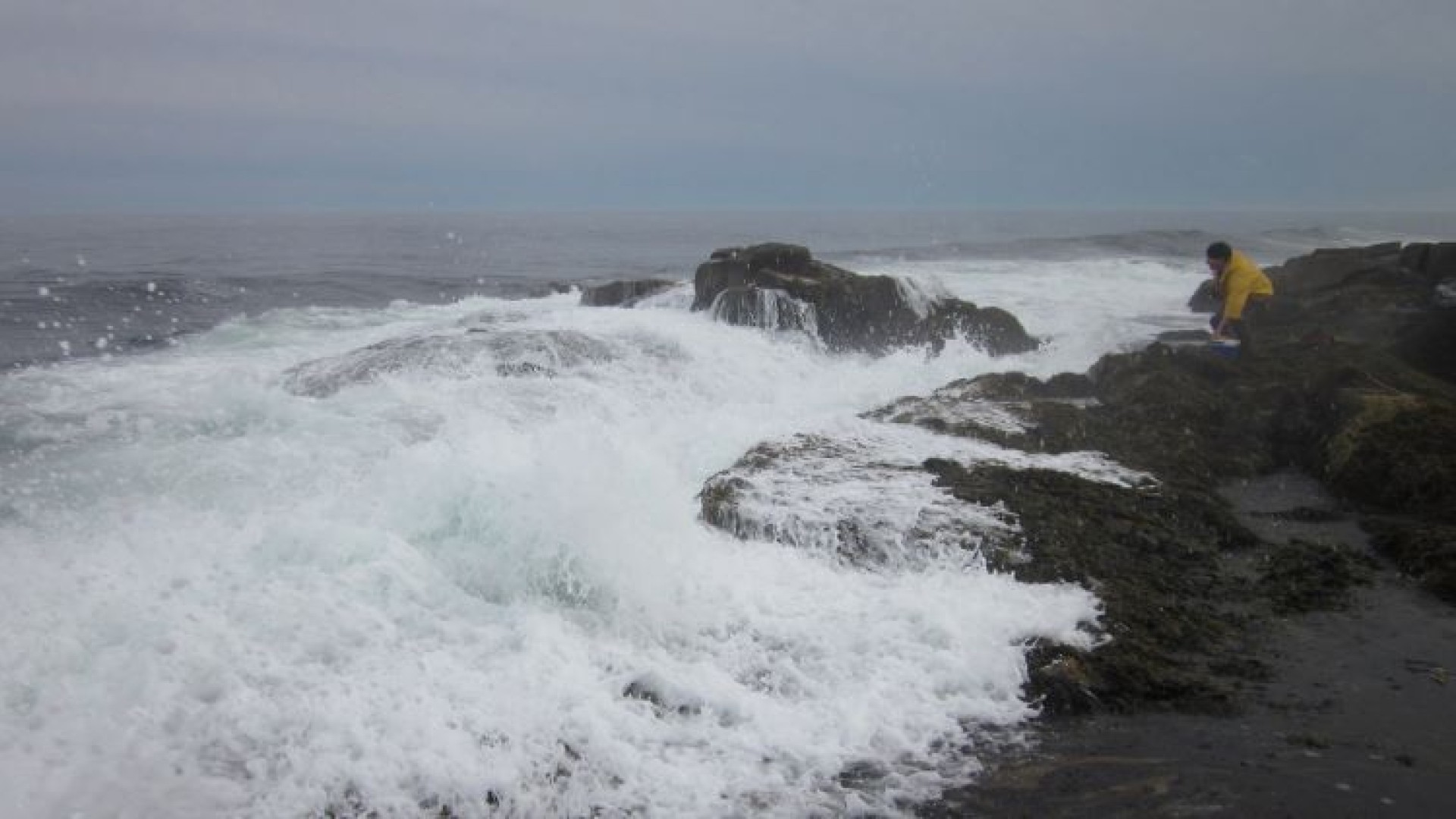
StFX’s Marine Ecology Lab, led by Dr. Ricardo Scrosati, has just published a large multiannual study that for the first time documents the latitudinal and temporal changes in air and sea temperature in intertidal habitats along the Atlantic coast of Nova Scotia.
Dr. Scrosati, together with postdoctoral fellow Julius Ellrich and Master of Science student Matthew Freeman, has co-authored the article, “Half-hourly changes in intertidal temperature at nine wave-exposed locations along the Atlantic Canadian coast: a 5.5-year study” that appears in the high-impact journal, Earth System Science Data.
“This is a particularly relevant study because it applied an unprecedented level of sampling effort, since we measured temperature every half hour at nine intertidal locations spanning more than 400 km of coastline for a period of 5.5 years (2014-2019),” Dr. Scrosati says.
“All in all, the temperature loggers that we deployed along the coast generated more than 800,000 data points during the study.”
There are multiple potential uses of this data set, Dr. Scrosati says. For example, they have already established links between the thermal conditions of coastal waters and patterns of invertebrate recruitment and predator abundance along the coast.
In addition, they have shown how El Niño-related changes in coastal winds relate to the intensity of upwelling, a coastal phenomenon that cools down the ocean surface and increases productivity.
“Our study also reveals alongshore differences in upwelling that consistently occur every year, a previously unknown occurrence. Ultimately, this is the first baseline data set on intertidal temperature for this coast.
“Due to its detailed spatiotemporal coverage, I expect that it will be useful over the years for various researchers to address a diversity of questions on coastal marine ecology, oceanography, and climatology in our region.”
Their research was funded by a Discovery Grant from NSERC and a Leaders Opportunity Grant from CFI awarded to Dr. Scrosati.
This research is, in part, made possible by the Government of Canada Research Support Fund.

